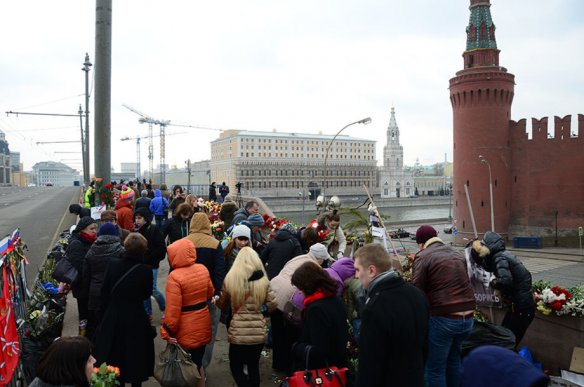
People are still coming to the Nemtsov bridge. Photo from Novaya gazeta.
While Putin may believe in his own infallibility, his courtiers have to persist in reassuring him about the fragility of Western unity. Just another push and a couple more bribes, they argue, will convince some North Atlantic Treaty Organization (NATO) members that Narva or Spitsbergen are not worth fighting for, or to persuade some EU members that the sanctions regime is counter-productive. This split needs to be achieved in the coming weeks, in time for a summer offensive in eastern Ukraine toward Mariupol and Melitopol (opening the land corridor to Crimea) to be condoned at new (Minsk Three) summit—where France and Germany would be tasked with convincing Ukraine that peace has to be paid for with more concessions. This wishful strategizing is not without reason, and it is up to the EU to prove its capacity to stand together—and up to the United States to lead a successful Western rejection of Russia’s tactics of bullying and bluff. Deterring Putin’s Russia is a different and trickier task than containing the Soviet Union, but statesmanship will always prevail over scoundreldom.
This is the ending of the article published in Eurasia Daily Monitor, March 23.